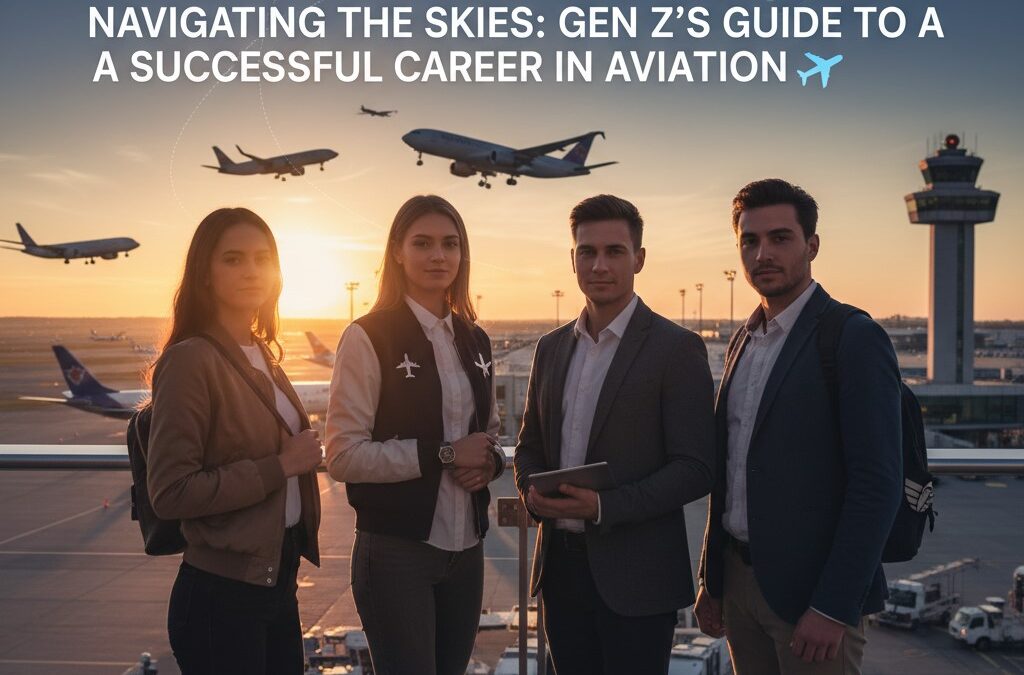The aviation industry is fast-paced, dynamic, and technology-driven — an environment that aligns well with Generation Z. However, adapting to this professional world requires understanding its discipline, customer focus, and safety-oriented culture.
How Gen Z Can Adapt to the Aviation Industry
Develop Professional Discipline –
Aviation runs on strict schedules, procedures, and uniform standards. Gen Z must adapt by being punctual, reliable, and rule-abiding at all times.
Enhance Communication and Interpersonal Skills –
Aviation involves constant interaction with passengers, crew, and ground staff. Building clear, polite, and empathetic communication skills is vital.
Adapt to 24/7 Work Environment –
The aviation industry operates round-the-clock, across time zones. Gen Z should learn to handle shift duties, night schedules, and irregular work hours professionally.
Embrace Multicultural Sensitivity –
Airports and airlines are global hubs. Understanding different cultures, languages, and etiquette helps provide better customer service.
Balance Technology with Human Touch – While Gen Z is tech-savvy, aviation demands emotional intelligence too. Use technology smartly but maintain personal connection with passengers.
Build Stress-Handling Capacity –
Working in aviation means dealing with delays, demanding passengers, and emergencies. Staying calm, patient, and solution-oriented under pressure is crucial.
Focus on Grooming and Presentation –
Professional appearance and hygiene are essential in all aviation roles. Gen Z should adapt to strict grooming and uniform codes.
Commit to Continuous Learning –
Aviation rules, technology, and safety procedures keep evolving. Stay updated through refresher training, online courses, and certifications.
The aviation industry demands discipline, professionalism, and adaptability from Gen Z. To succeed, they must develop strong communication skills, cultural awareness, and the ability to manage stress in a fast-paced environment. Maintaining excellent grooming standards and emotional intelligence is essential. Continuous learning and commitment to safety and service excellence will ensure long-term success in aviation.

